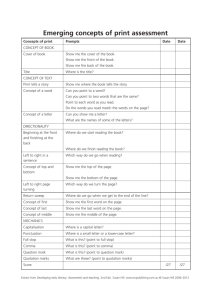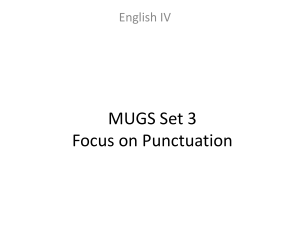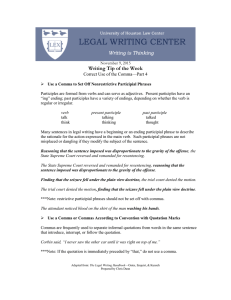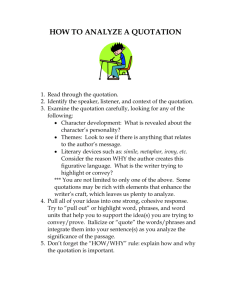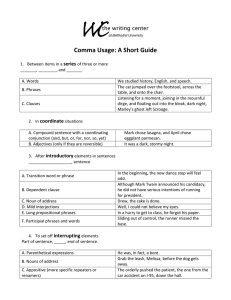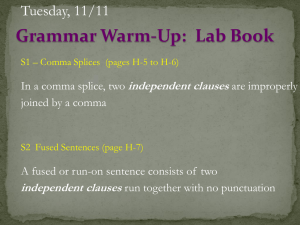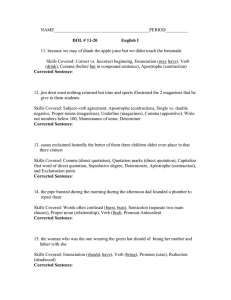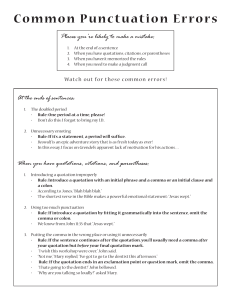MISCELLANEOUS TERMS Floating Quotation
advertisement
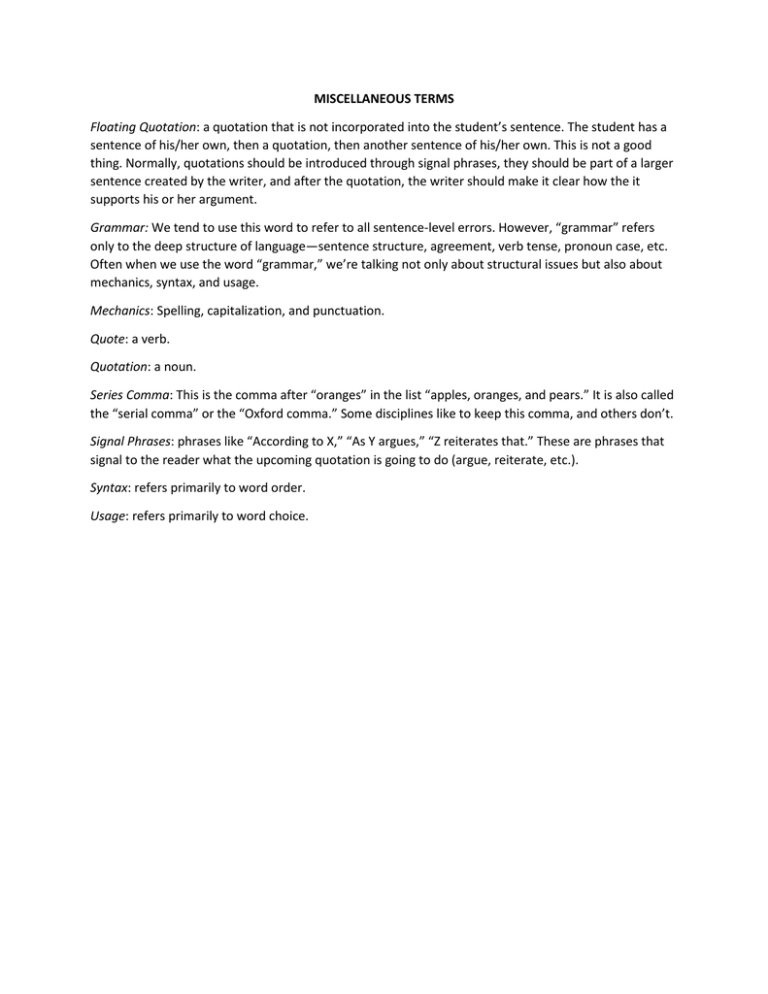
MISCELLANEOUS TERMS Floating Quotation: a quotation that is not incorporated into the student’s sentence. The student has a sentence of his/her own, then a quotation, then another sentence of his/her own. This is not a good thing. Normally, quotations should be introduced through signal phrases, they should be part of a larger sentence created by the writer, and after the quotation, the writer should make it clear how the it supports his or her argument. Grammar: We tend to use this word to refer to all sentence-level errors. However, “grammar” refers only to the deep structure of language—sentence structure, agreement, verb tense, pronoun case, etc. Often when we use the word “grammar,” we’re talking not only about structural issues but also about mechanics, syntax, and usage. Mechanics: Spelling, capitalization, and punctuation. Quote: a verb. Quotation: a noun. Series Comma: This is the comma after “oranges” in the list “apples, oranges, and pears.” It is also called the “serial comma” or the “Oxford comma.” Some disciplines like to keep this comma, and others don’t. Signal Phrases: phrases like “According to X,” “As Y argues,” “Z reiterates that.” These are phrases that signal to the reader what the upcoming quotation is going to do (argue, reiterate, etc.). Syntax: refers primarily to word order. Usage: refers primarily to word choice.
